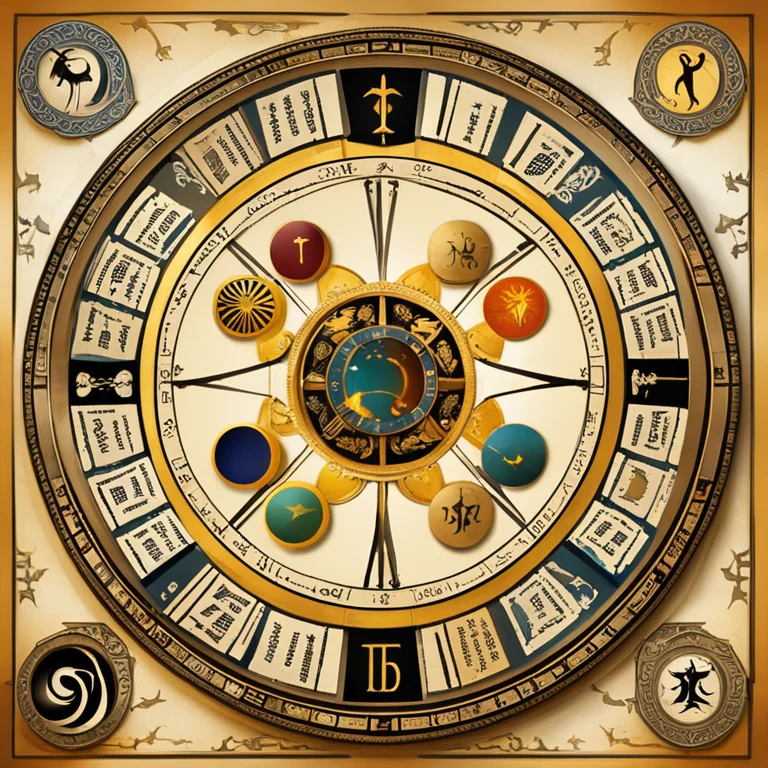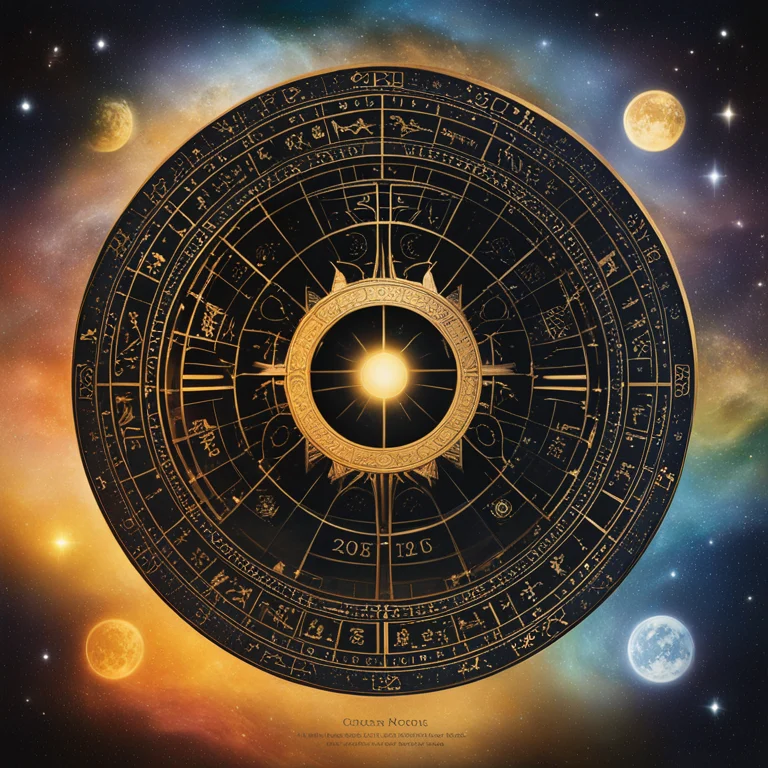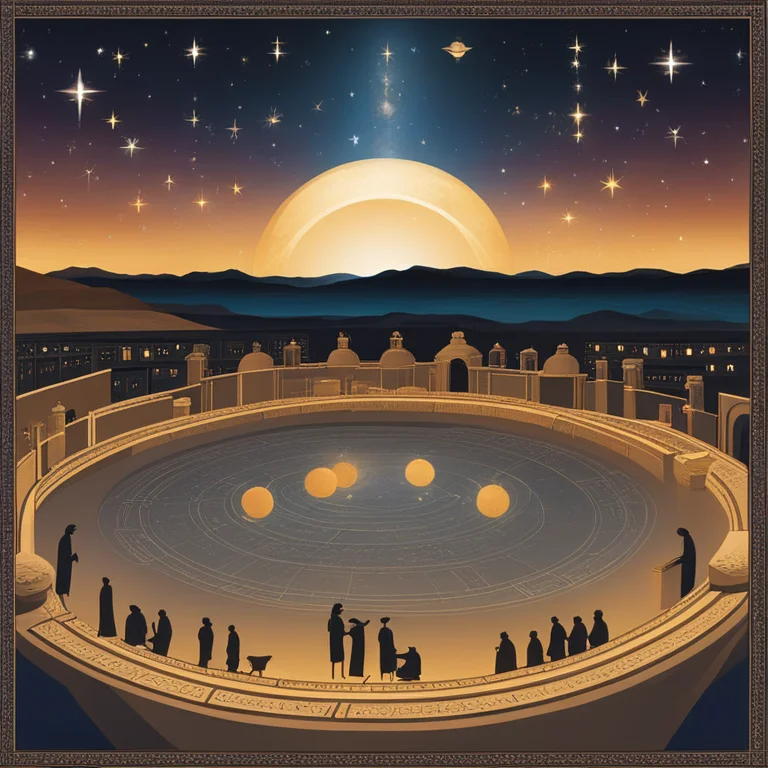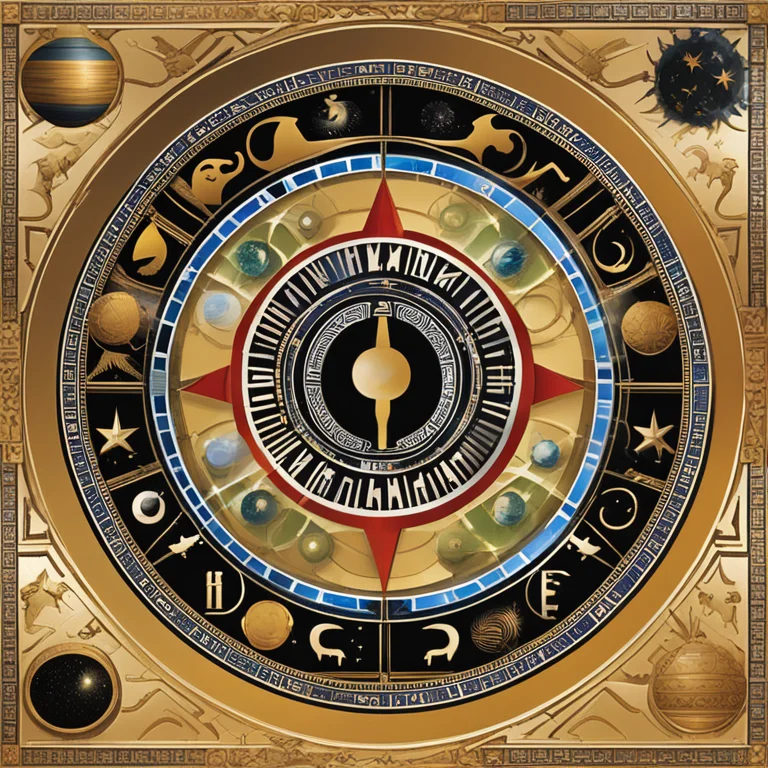
The Astronomical Roots of Zodiac Signs
The astronomical roots and cultural emergence of the zodiac signs date back millennia. Journey through history to discover the genesis of astrological tradition.
article by Priya Deshmukh
The Dawn of Astrology
The fascination with celestial patterns has been a cornerstone of human curiosity since prehistoric times. Our ancestors gazed at the night sky, charting the stars' movements and configurations in an attempt to decipher their influence on life on Earth. The zodiac, a belt of the heavens within about 8 degrees on either side of the ecliptic, is home to the astrological signs familiar to us today. These twelve constellations have ancient histories rooted in early agrarian cultures, which relied on celestial cues for planting and harvesting crops.

Ancient Babylon and Stellar Omens
The origins of the zodiac system that we recognize today trace back to ancient Babylon, around the 5th century BCE. The Babylonians divided the sky into twelve equal parts, corresponding with the twelve lunar cycles of the year and assigning constellations to each. They strongly believed that celestial phenomena were directly connected to earthly events, creating an elaborate system of omens, later known as celestial divination or astrology.

Greek Adaptation and Synthesis
The Greeks were significantly influenced by the Babylonian system during the Hellenistic period, further developing the concept of the zodiac. Ptolemy, an influential Greek astronomer and astrologer, compiled the astrological treatise known as the 'Tetrabiblos' in the 2nd century CE. This work synthesized centuries of astrological knowledge and heavily impacted later astrological tradition. It is in these Greek syntheses where the classical zodiac signs as we know them were fully fleshed out.

The Zodiac in the Roman Era
Astrology burgeoned throughout the Roman Empire, with the zodiac signs growing in cultural significance. By this time, the astrological system had evolved to include personality traits and destiny forecasts associated with each sign, concepts that had a profound effect on Roman culture. This period framed much of the zodiac's archetypal imagery and interpretative methods that would carry through to modern times.

Continued Evolution in the Modern Era
Throughout the centuries, astrology has waxed and waned in popularity, often viewed with skepticism by the scientific community. Yet, its importance in popular culture has persisted, evolving alongside society. Today, looking forward to 2024 and beyond, interest in astrology has surged, with zodiac forecasts sought for their guidance and personal insight, continuing the tradition of seeking understanding from the stars.
The Zodiac Today and Tomorrow
In contemporary practice, astrologers cast horoscopes based on the positions of the planets, including the sun and moon, within the zodiac constellations at a person's time of birth. As we enter 2024, astrologers consider the unique alignments and retrogrades of the planets to make increasingly precise and personal readings. Astrology now extends into the realms of digital technology, where apps and websites offer daily horoscopes, compatibility charts, and more, making ancient knowledge readily accessible to a modern audience.
Published: 1/9/2024
Modified: 1/10/2024
More predictions
Come back here soon to learn more about yourself and your future


Can Astrology Predictions Be Altered?
Explore whether the predictions of astrology have the flexibility to change and if individuals can influence their astrological destinies.


Can Astrology Predict Romantic Futures?
Discover whether astrology has the power to predict love and how the stars might influence your romantic destiny.


Astrology & Potential Divorce Predictions
Examine the potential of astrology in forecasting marital stability and the likelihood of divorce.